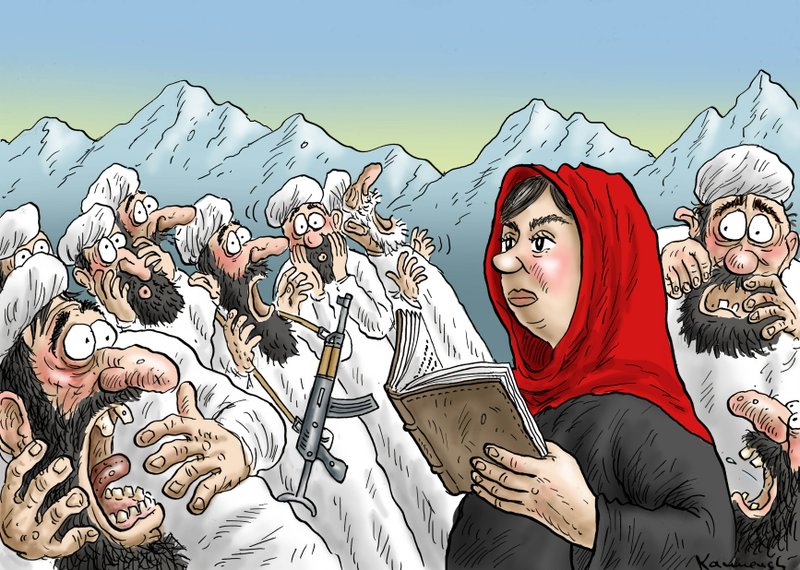Philosopher René Girard and others have studied how human societies tend to expel our anxieties and frustrations by blaming. Nations, cultures, and groups hold together when they have a common enemy. If we can blame our problems on another, we will feel better. It's called the "scapegoat mechanism." When we feel threatened or insecure, we find a scapegoat who can be blamed for the problem. We attack or expel the scapegoat. We experience relief; we feel order is restored. Then the cycle begins all over again.
The scapegoat mechanism works for individuals as well it works for groups.
Watch the next time you wake up in a grumpy mood. It is just a matter of time before you will criticize, blame or judge somebody for something. After you have leveled your blame, you will probably feel better. There is something about projecting our darkness upon another that dissipates our negative energy.
Roman Catholic Franciscan Richard Rohr cites a study saying the average person cannot go more than three to eight minutes without making a criticizing judgment. As I watched myself, I found I was closer to the three minute frequency than the eight minutes.
Our political system is driven almost entirely by the rhetoric of blame and attack. Why? Because it works. It is easier to get people to vote against someone than for someone. Negative energy is forged more quickly than positive identity. Negative campaigning motivates voters. Political strategists know that. Try counting political messages.
To prove another wrong gives us energy. If we can accuse another of being stupid, that makes us seem smart. If we can show that someone else is bad, we appear good by comparison. Whenever we claim another is wrong or a heretic, we imply that we are right thinking and orthodox. In our human weakness, we seem to need others to cast into the shadow of our rightness.
Jesus taught another way. Jesus told us to love our enemies, not blame or defeat them. Jesus stepped out of all of the social and political divisions of his day, befriending saint and sinner alike, Jew and Gentile, healing and feeding foreigners just like his own people, touching the untouchable and reaching out to the outcast.
Jesus himself became the scapegoat. The religious authorities judged him a blasphemer; the civil authorities convicted him as a capital criminal. Jesus never returned the blame. He trusted something greater. He only returned love, understanding and forgiveness.
That noble path is not exclusively Christian. A young Muslim from Pakistan, Malala Yousafzai, has just received the Nobel Peace Prize. When Malala was 12, a Taliban gunman shot her in the face for her blog about education for girls. She survived and became known worldwide.
The Taliban vowed to return and finish the job of killing her. "I started thinking about that and I used to think that the Talib would come, and he would just kill me. But then I said, 'If he comes, what would you do Malala?' then I would reply to myself, 'Malala, just take a shoe and hit him.'
"But then I said, 'If you hit a Talib with your shoe, then there would be no difference between you and the Talib. You must not treat others with cruelty and that much harshness; you must fight others but through peace and through dialogue and through education.'
"Then I said I will tell him how important education is and that 'I even want education for your children as well,' And I will tell him, 'That is what I want to tell you, now do what you want.'"
Malala says, "I don't want revenge on the Taliban. I want education for sons and daughters of the Taliban."
No revenge or blaming. Just advocacy for what you believe is good.
I'd like you to join me in an experiment. I'm going to notice whenever I begin a critical thought toward another. Then I am going to gently lay aside that judgment. I will see the other person as a beloved child of God, just like me. I will see them as doing the best they can, given the limits of our human knowledge and experience, just like me. I'm going to resist the easy dichotomies of right/wrong, for/against. I'm going to hold on to the tension of both/and. I want to reach a place beyond dualistic thinking.
Then let go of all scapegoating, I'm going to try to focus only on what I am for, and be an advocate for what I believe is good.
LOWELL GRISHAM IS AN EPISCOPAL PRIEST WHO LIVES IN FAYETTEVILLE.
Commentary on 10/19/2014
